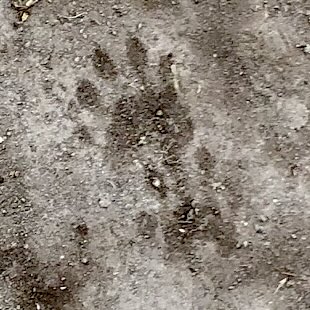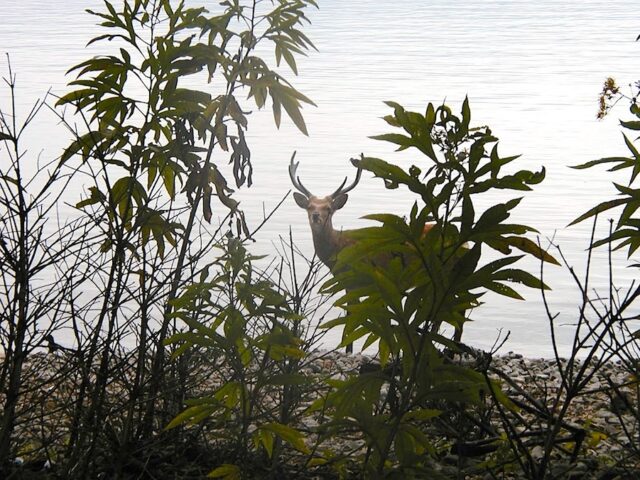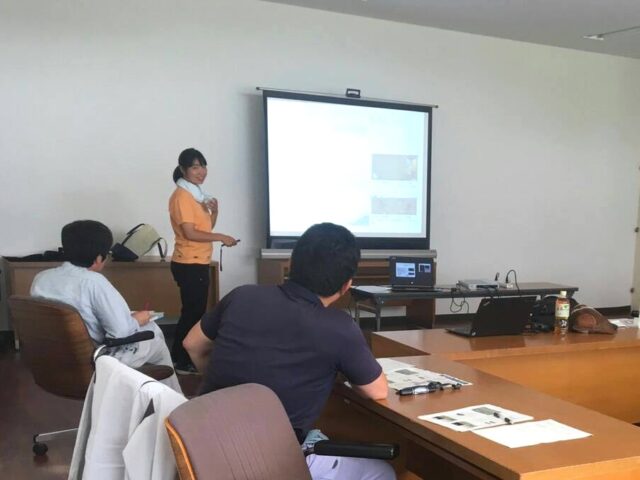Profile

- Research Subject
Development of population estimation methods and trapping techniques for Japanese sika deer (Cervus nippon). Impact of deregulation of hunting and nuisance control on the population dynamics of Japanese deer. Assessment of spatial distribution of the invasive alien species raccoon dog and verification of the effectiveness of trapping projects. International comparison of resource utilization of ungulates.
- Research Fields
- Wildlife Management, Population Ecology, Policy Science, Game biology, Science of hunting
- Faculty - Division / Research Group / Laboratory
- Division of Human Sciences / Research Group of Regional Science / Laboratory of Regional Science
- Graduate School - Division / Department / Laboratory
- Division of Human Sciences / Department of Regional Science / Laboratory of Regional Science
- School - Course / Laboratory
- Division of Humanities and Human Sciences / Course of Human Sciences / Laboratory of Regional Science
- Contact
Email: ueno-mayumi(at)let.hokudai.ac.jp
Replace “(at)” with “@” when sending email.Foreign exchange students who want to be research students (including Japanese residents) should apply for the designated period in accordance with the “Research Student Application Guidelines”. Even if you send an email directly to the staff, there is no reply.
Lab.letters


Nature's blessings and threats are two sides of the same coin—Wildlife management is an issue for everyone
We all enjoy the blessings that are born from the Hokkaido ecosystem, but the management of wildlife is a social problem that is an issue for everyone. Within this topic, I have two main areas of research. The first one is to propose a framework for building vertical and cross-sectional coordination between multiple bureaus and ministries, such as the Ministry of Agriculture, Forestry and Fisheries and the Ministry of the Environment, 12 general sub-prefectural bureaus and sub-prefectural bureaus, and various municipalities, which have a complex overlap in terms of administration. The second is to create case studies for nurturing leaders who can expand efforts for wildlife measures to local residents other than those engaged in farming.
The blessings of nature and the threats to nature are two sides of the same coin. I am working together and in step with relevant persons to resolve the social problems that are distinct to Hokkaido, a land where people can feel the blessings of and threats to nature more than anywhere else.
Going beyond advice—Being a guide runner aiming for the same goal
Researchers are generally in a position where they need to provide “advice” on social problems, but in my case, I always value the perspective of “working together” as a member of a team that tackles the same wildlife management. The experience of sharing issues with a range of people and considering ways to break deadlocks brings about learning experiences that can be fully used in settings apart from academia and research.
We undertake research on various approaches to wildlife, such as anthropology and museology, at the Faculty of Humanities and Human Sciences of Hokkaido University, and you can feel the significance of its existence as it stands face to face with society and regions. Do you wonder from what perspective you want to explore the relationship between animals and humans? Once you have found a topic that you can grapple with enthusiasm, I want to firmly support you as a guide runner.
Message
In our laboratory, we conduct research on medium- and large-sized mammals to reveal their ecology and how society should handle wildlife, which are essential for abating conflicts with society and making compromises.
Research on wildlife is progressing in the School of Agriculture, Environmental Sciences, Veterinary Medicine, etc. At our Regional Science Laboratory, we emphasize connections between animals and people, and our research targets include not only research on ecology and technological countermeasures, but also how obtained knowledge and technology can be useful for society, and implementation science. Moreover, we research what kind of barriers exist against the utilization of knowledge and technology, and mechanisms for social policies and social structures.
I have been engaged in developing methodologies on population estimation of Yezo sika deer and capture techniques. Superior technology is needed alongside conditions that make it easy for society to apply them in order for research results to be used by society. Outreach activities are crucial efforts for applied research that aims for implementation in society, and I welcome students who can patiently grapple with research even if things do not go the way that you think.
While the dynamic movement of wildlife is very appealing, it becomes a problem if wildlife enter our homes and interfere with normal life. Coexistence with wildlife has a nice ring to it, but it also becomes a battle for securing your own place to live. What must not be forgotten is that we are all members of the same global ecosystem who receive various benefits from nature. Our laboratory will continue to explore how and where we can continue to protect wildlife while bringing to light their ecology.




